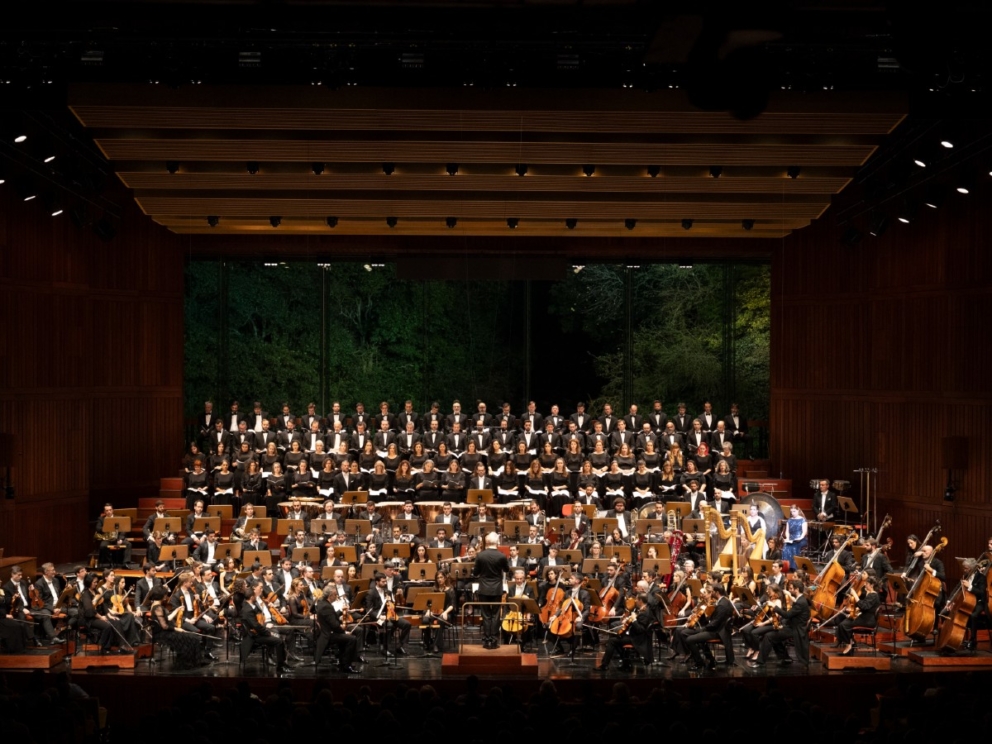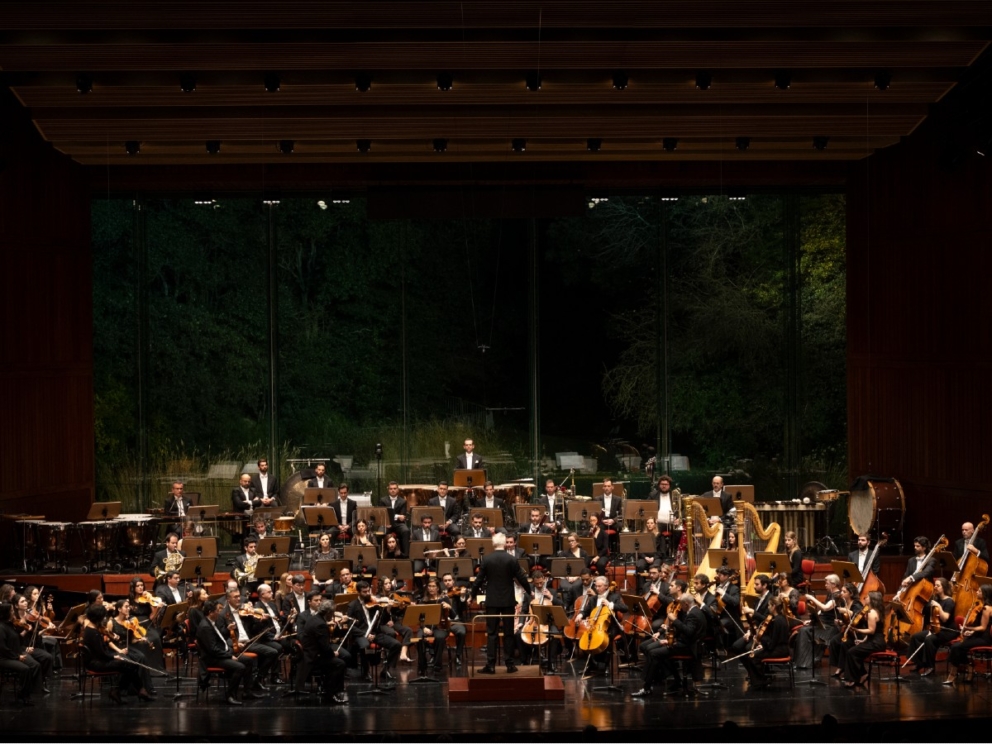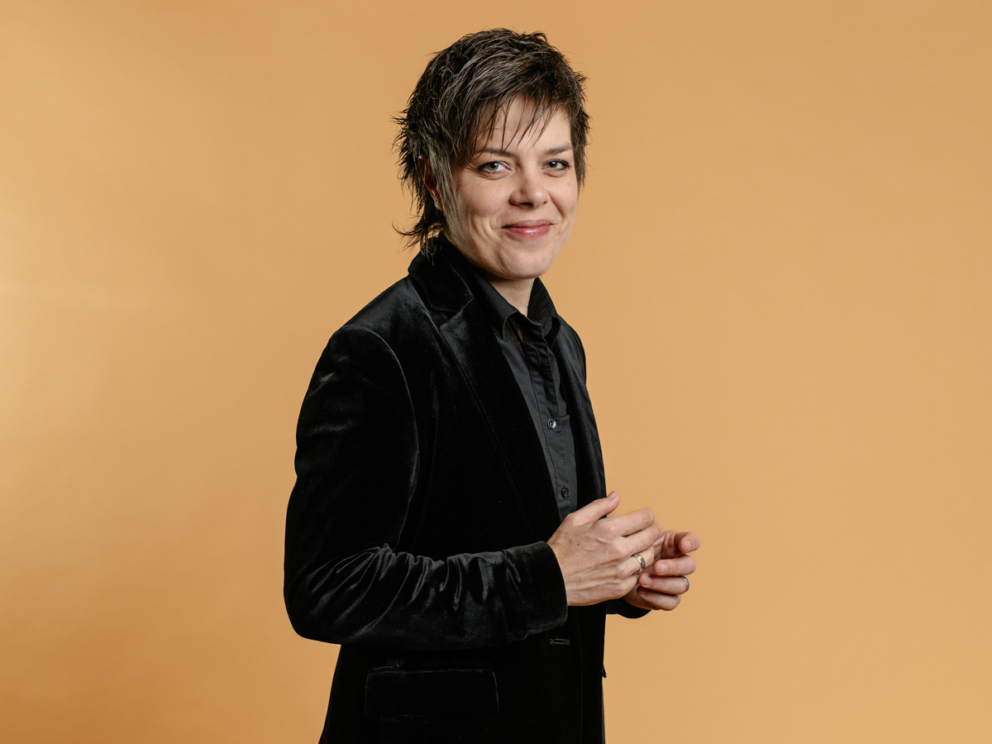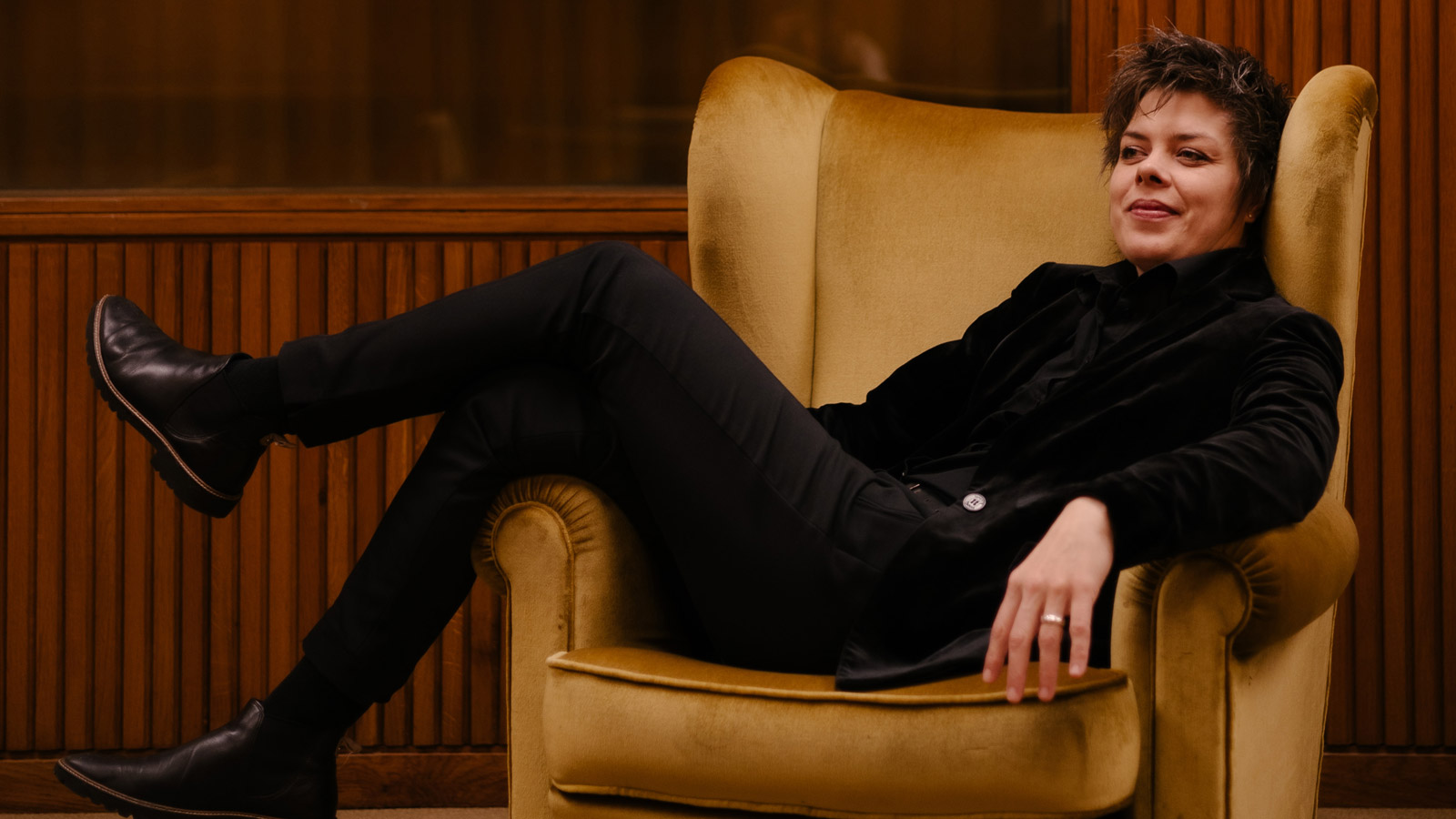Mozart’s Requiem
Gulbenkian Orchestra and Choir
Event Slider
Date
- / Cancelled / Sold out
Location
Grand Auditorium Calouste Gulbenkian FoundationPricing
- 23,00 € – 47,00 €
25% – Under 30
10% – Over 65
Cartão Gulbenkian:
50% – Under 30
15% – Over 65
- Conductor
- Ana Vieira Leite Soprano
- Carolina Figueiredo Mezzo-soprano
- Carlos Pedro Santos Bass
-

Gulbenkian Choir
Coro Gulbenkian was founded in 1964 by the Calouste Gulbenkian Foundation as a full symphonic body of around 100 singers. The choir joins the Orquestra Gulbenkian and other orchestras to perform Classical, Romantic and Contemporary choral-symphonic repertoire, but can also perform a cappella. It has performed – and often premiered – many 20th century works by Portuguese and international composers.
Coro Gulbenkian has been invited to collaborate with major international orchestras, under the direction of conductors such as Claudio Abbado, Colin Davis, John Nelson, Emmanuel Krivine, Esa-Pekka Salonen, Frans Brüggen, Franz Welser-Möst, Gerd Albrecht, Michael Gielen, Michael Tilson Thomas, Rafael Frübeck de Burgos, René Jacobs and Leonard Slatkin, among others.
Besides its regular season of concerts in Lisbon and frequent national tours, Coro Gulbenkian has repeatedly toured Argentina, Belgium, Brazil, Canada, Denmark, France, Germany, Hungary, India, Iraq, Israel, Italy, Japan, Macao, Malta, Monaco, Netherlands, Spain, the United Kingdom, the United States of America and Uruguay.
Coro Gulbenkian has recorded extensively for Philips, Deutsche Grammophon, Erato, Cascavelle, Musifrance, as well as FNAC-Music, performing a wide range of repertoire, from Early-Renaissance polyphony to Xenakis. Several of these albums received international awards.
Michel Corboz was the Principal Conductor between 1969 and 2019. Jorge Matta and Inês Tavares Lopes are currently the Associate and Assistant conductors, respectively.
-

Gulbenkian Orchestra
In 1962, the Calouste Gulbenkian Foundation decided to establish a permanent orchestral ensemble. Originally with only twelve musicians (strings and continuo) it was named “Orquestra de Câmara Gulbenkian”. This collective was successively enlarged and today the “Orquestra Gulbenkian” (the name it has adopted since 1971) has a permanent body of sixty instrumentalists, a number that can be expanded depending on the repertoire.
This structure allows the Gulbenkian Orchestra to interpret works from the Baroque and Classical periods, a significant part of 19th century orchestral literature and much of the music of the 20th century, including works belonging to the current repertoire of the traditional symphonic orchestras. In each season, the orchestra performs on a regular series of concerts at the Gulbenkian Grand Auditorium in Lisbon, where it has had the opportunity of working together with some of leading names of the world of music (conductors and soloists). It has also performed on numerous locations all over Portugal, in an effort to decentralize music and culture.
The orchestra has been constantly expanding its activities in the international level, performing in Europe, Asia Africa, and the Americas. In the recording field, Orquestra Gulbenkian is associated to labels as Philips, Deutsche Grammophon, Hyperion, Teldec, Erato, Adès, Nimbus, Lyrinx, Naïve and Pentatone, among others, and this activity was recognized with several international prizes.
-

Martina Batič
Principal Conductor
Martina Batič is one of the leading choir directors of her generation. As the winner of the renowned Eric Ericson Competition 2006, she is celebrated for her particular versatility in conducting a broad choral repertoire from chamber music to symphony.
Martina Batič has been Principal Conductor of the Chœur de Radio France from 2018-2022. Before that, she held the position of Artistic Director of the Slovenian Philharmonic Choir. From 2004-2009, Martina Batič was Artistic Director of the Choir of the Slovenian National Opera in Ljubljana. In season 2023/24 she is taking the Chief Conductor position of Danish National Vocal Ensemble in Copenhagen.
The Slovenian is a sought-after guest conductor and has been on podium of the RIAS Chamber Choir, Rundfunkchor Berlin, Chor des Bayerischen Rundfunks, MDR Rundfunkchor, SWR Vokalensemble, Chorwerk Ruhr, as well as the Eric Ericson Chamber Choir, Swedish Radio Choir, Danish National Vocal Ensemble, The Norwegian Soloists' Choir, Suomen Laulu Choir & Finnish Baroque Orchestra, Nederlands Kamerkoor, Netherlands Radio Choir, Flemish Radio Choir, Gulbenkian Choir and others.Future highlights include her return visits to Nederlands Kamerkoor, Netherlands Radio Choir, Gulbenkian Orchestra & Choir and engagements with Flemish Radio Choir, SWR Vokalensemble, Coro Casa da Musica Porto, Rundfunkchor Berlin, Zürcher Sing-Akademie, Helsinki Chamber Choir, Bachchor Salzburg among others.
Martina Batič has conducted A cappella concerts at festivals such as Baltic Sea Stockholm, Ultima Oslo, Choregies d’Orange, Montpellier, Saint-Denis and Présences Paris. In 2018 she conducted the Swedish Radio Choir & Eric Ericson Chamber Choir in a gala concert on the occasion of Eric Ericson's 100th birthday.
Martina Batič obtained her Bachelor of Music from the Music Academy of the University of Ljubljana in 2002. She continued her studies at the University of Music and Theater in Munich in the class of Prof. Michael Gläser, where she completed her master's degree in choral conducting with distinction in 2004. She attended master classes across Europe and worked with renowned choral conductors such as Eric Ericson.
In 2019 Martina Batič received the Slovenian national prize “Prešeren Fund Awards” for her artistic achievements in the field of choral conducting.
Wolfgang Amadeus Mozart
The story of Mozart’s Requiem reads like a fictional narrative. Having been commissioned to compose a Requiem in 1781 by a patron who wished to remain anonymous, Mozart set about the task while his health deteriorated. It was as if the composer was writing a mass to honour him after his death. He worked obsessively, convinced that a dark omen accompanied the composition and ended up dying before he could complete a work that would nevertheless survive in all its grandeur.
Sponsor Gulbenkian Music
The Calouste Gulbenkian Foundation reserves the right to collect and keep records of images, sounds and voice for the diffusion and preservation of the memory of its cultural and artistic activity. For further information, please contact us through the Information Request form.
